Distribution Evolution / Wildlife Trends
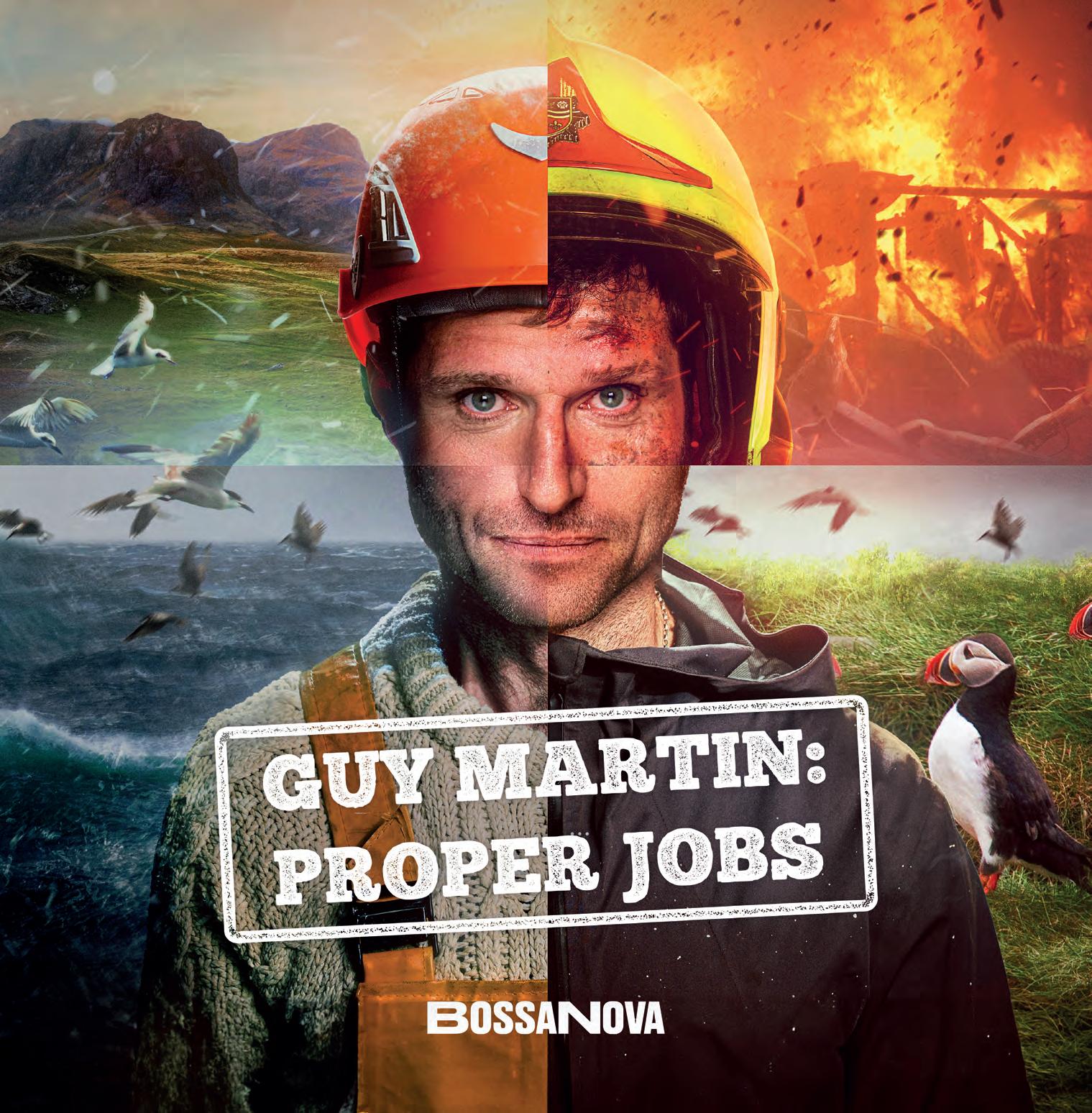

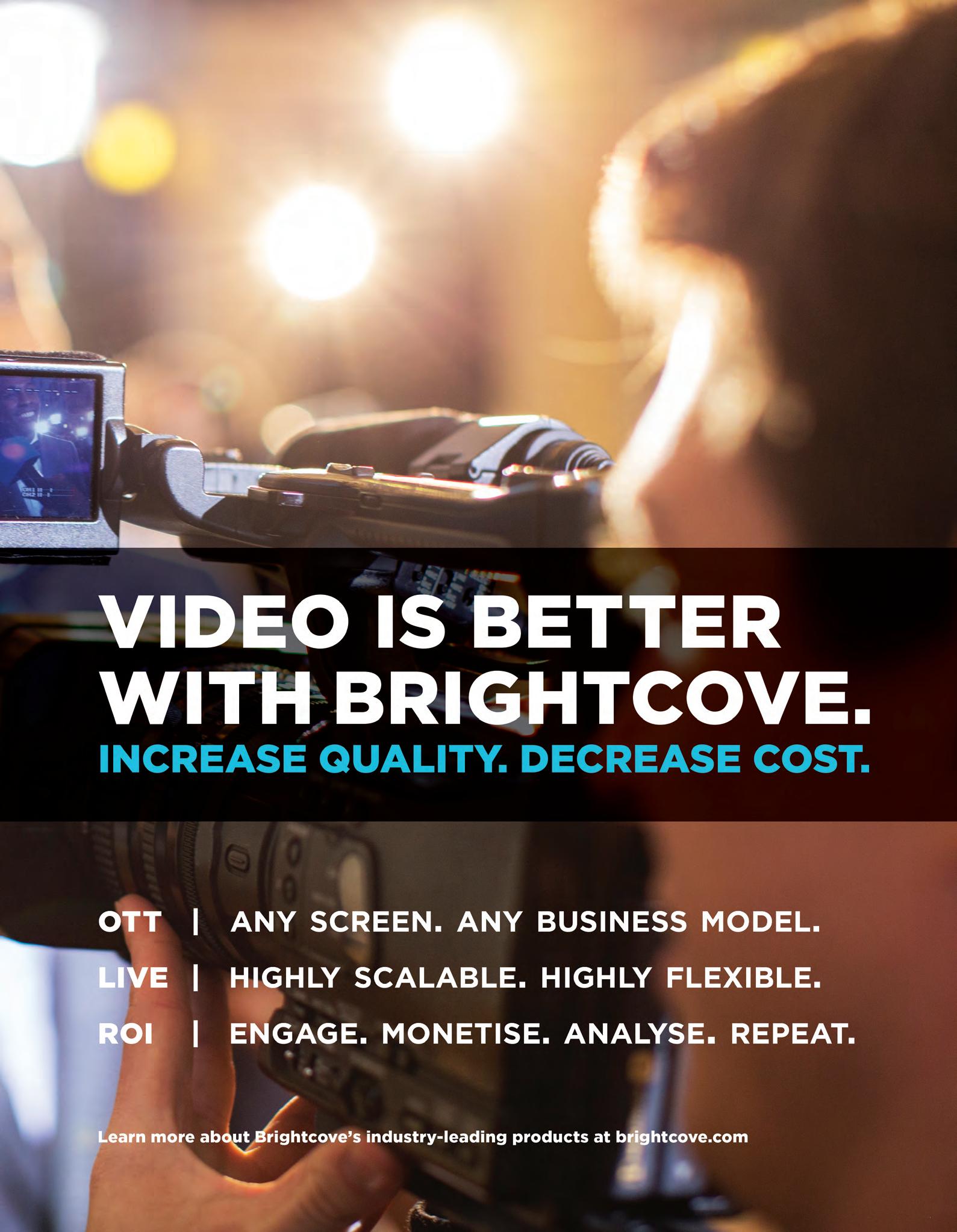






The disappearance of the “middle ground” in the factual space cropped up in many of my conversations with distribution and production executives over the last few months.
An array of factual distributors offer up their insights on navigating the current climate.
Ricardo Seguin Guise Publisher
Mansha Daswani Editor-in-Chief
Jamie Stalcup Managing Editor
Kloudia Sakowski Associate Editor
David Diehl Production & Design Director
Simon Weaver Online Director
Dana Mattison Sales & Marketing Director
Genovick Acevedo Sales & Marketing Manager
Ute Schwemmer Bookkeeper
Premium, big-budget, limited-run event pieces that will make noise on one end. Returners that can engender viewer loyalty on more manageable budgets—and deliver in the long tail—on the other. Figuring out how to navigate between those two spaces, while still championing those great ideas in the middle that might get lost in the market’s polarization, was one of the key themes of the TV Real Festival this summer.
“This industry is built and thrives on creativity and innovation,” Bruce Robertson, chief storyteller at 11:11 Media, the next-gen media company founded by reality TV icon Paris Hilton and Bruce Gersh, said in his keynote session. “We’re beginning to see the green shoots coming through with people pivoting. For a period of time, brands were shut out of the streaming platforms because they were all very subscription-based, and now, of course, that’s pivoting to successful ad tiers. FAST channels are reinventing and rethinking. There are different independent financing models. The branded-content side of things ten years ago was a dirty phrase, but now brands have pivoted and figured out a different way to integrate into storytelling in ways that don’t feel intrusive to the audience.”

A look at the complexities of bringing visuals of natural wonders to viewers.
Ricardo Seguin Guise President
Mansha Daswani
Associate Publisher & VP, Strategic Development
TV Real
©2025 WSN INC.
401 Park Avenue South, Suite 1041, New York, NY 10016, U.S.A.
Phone: (212) 924-7620
Website: www.tvreal.com
“It used to be that if you just knew how to pick up a camera and tell a story and edit, that would be enough,” Mariana van Zeller, host of National Geographic’s Trafficked, said in her keynote with fellow Muck Media co-founder Cristina Costantini. The indie was founded by five best friends and has a slate of projects across streaming and cable. “Now, you have to figure out how to read a contract, sell, find financing and play in the sandbox of all these new mediums.”
Lion Television’s Richard Bradley discusses how that prominent production company—part of All3Media—is navigating the sector’s slowdown in this edition. We hear from Tom McDonald about what’s driving National Geo graphic’s global originals strategy across key categories like wildlife, history and science; his approach to aligning with talent; and how he is thinking about AI. We also explore the ramifications of AI in our annual distributors’ survey, which touches on financing, co-productions, franchise-building and driving monetization across AVOD, YouTube and FAST. Mansha Daswani


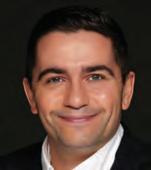
Lion Television’s Richard Bradley
National Geographic’s Tom McDonald

WWII with Tom Hanks / Homicide Squad New Orleans / Ice Road Truckers
A+E Global Media’s factual slate for MIPCOM is headlined by WWII with Tom Hanks. Hanks’ “passion for and deep knowledge of this rich period of history help elevate each of the 20 hours of this project to something truly extraordinary,” explains Melissa Madden, senior VP of international marketing. In true crime, the lineup includes Dick Wolf’s Homicide Squad New Orleans, “our third project with Wolf, which speaks well to our global reputation when it comes to telling these types of stories,” Madden says. Another season of Ice Road Truckers is available, this time returning to Northern Canada. With other titles such as Storage Wars, Ancient Aliens, The Chrisleys: Back to Reality and Secrets Declassified with David Duchovny, “our catalog boasts a depth and breadth that puts us in a great position to meet our clients’ diverse needs,” Madden says.

“A+E
Global Media’s library is naturally built to meet current industry needs.”
—Melissa Madden
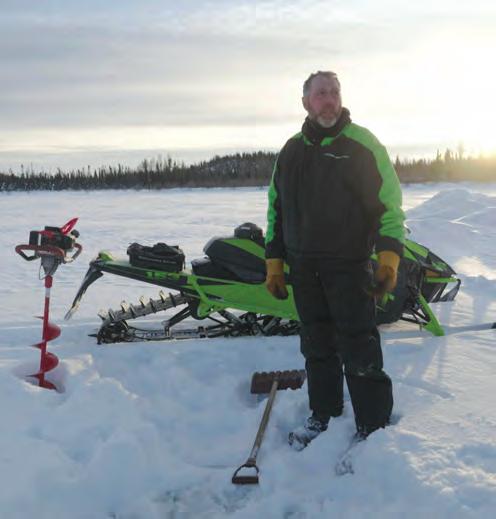
Europe: One Continent—Five Worlds / Oases—Islands of Life / Piranesi—Visionary of Shadow and Stone
Europe: One Continent—Five Worlds explores Europe’s most fascinating habitats and meets remarkable wild inhabitants. Oases—Islands of Life explores five oases, uncovering the plants, animals and people surviving in extreme conditions.
“These isolated habitats deliver cinematic beauty alongside urgent themes of climate change, resilience and biodiversity, all of which resonate across global markets,” says Anne Olzmann, managing director of Albatross World Sales, which is bringing the series to MIPCOM. Piranesi—Visionary of Shadow and Stone traces the life of Giovanni Battista Piranesi, artist, archaeologist and visionary. “What makes these titles stand out for international buyers is a compelling blend of universal themes, visual appeal, emotional and intellectual resonance and originality,” Olzmann says.

Europe: One Continent—Five Worlds Ice Road Truckers

“At MIPCOM, our mission is clear: to connect, collaborate and continue sharing powerful, high-quality documentaries with audiences around the world.”
—Anne Olzmann
Wild Homes with George Clarke / Hunting the Yorkshire Ripper / Beyond Bali: The World’s Most Exotic Islands
Story Films continues to help All3Media International serve up the best in true crime to clients worldwide, with the outfit’s Hunting the Yorkshire Ripper among the distributor’s key launches for MIPCOM. It follows the hunt for “Wearside Jack,” the hoaxer whose tape recordings derailed the Yorkshire Ripper investigation in the late 1970s. “Hunting the Yorkshire Ripper blends exclusive interviews, compelling evidence, archive footage and new revelations to deliver a gripping truecrime story behind this terrifying hoax,” says Peta Sykes, VP for the Nordics at All3Media International. Lifestyle is also a key part of the slate with Wild Homes with George Clarke and the eight-part Beyond Bali: The World’s Most Exotic Islands, which Sykes bills as a “captivating adventure series that goes beyond the usual tourist hotspots.”


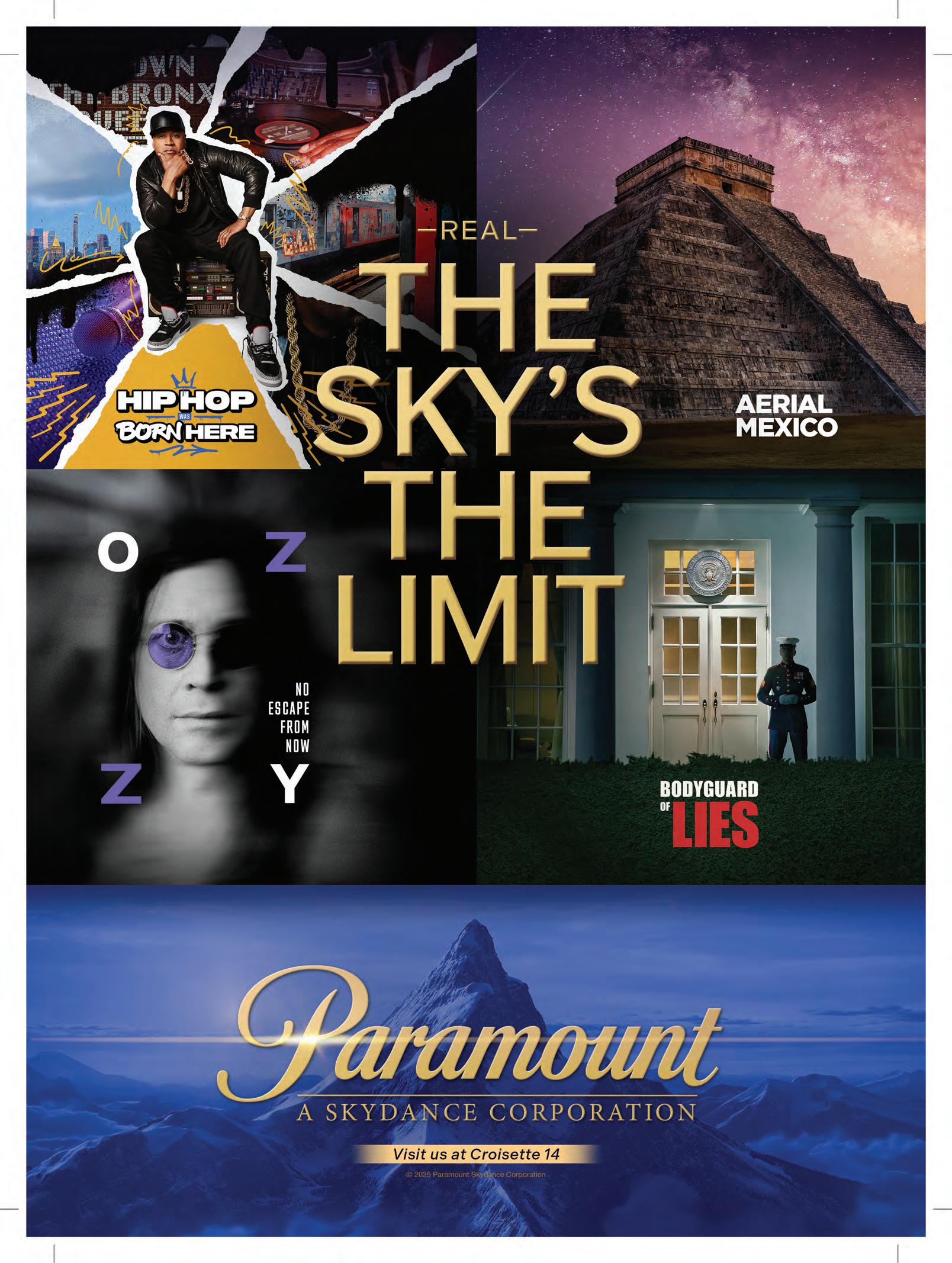
Independence Dawn—The Forgotten Revolution / Penguin Baywatch / The Sum of All Cities
Autentic Distribution is bringing to MIPCOM Independence Dawn—The Forgotten Revolution, telling the human story behind the American Revolution. “By shining a light on oftenoverlooked revolutionaries, including women, Black soldiers, spies and young people, it offers a gripping and timely reexamination of America’s founding struggle and challenges audiences to ask: whose freedom was truly won?” says Mirjam Strasser, head of sales and acquisitions. Blending humor with hard facts and science, Penguin Baywatch features footage of king penguins’ complex social lives, daily struggles against predators, harsh weather and the challenges of survival. The Sum of All Cities combines urban life, a universal subject, with a unique storytelling device where numbers unlock surprising human stories.

Ancient Autopsy / Gold Wars Down Under / Ed Gein: Original Psycho
Ancient Autopsy, on offer from BossaNova Media, uses digital technology and reconstructions to investigate how historical figures such as Cleopatra and Alexander the Great may have met their end. Gold Wars Down Under follows three mining teams as they battle it out in a modern-day gold rush in Australia. Ed Gein: Original Psycho brings a true-crime story to life using actor-led recordings of police interrogation transcripts, AI-assisted dramatic reconstructions and rare archival footage. Holly Cowdery, head of sales, says, “We are delighted to be returning to MIPCOM for the fifth time as a company to proudly bring our varied and quality slate to the market. Compared with last year, we have a much larger selection of launch titles, a number of which are BossaNova commissions or shows we have contributed finance toward.”
“We are expanding our FAST and YouTube channels and experimenting with digital-first content while also moving into feature documentaries, all with the mission of bringing highquality factual storytelling to global audiences.”
—Mirjam Strasser



“These shows feature innovative storytelling combined with rich, vibrant characters and are made with highly reputable and trustworthy production companies.”
Operation Dark Phone: Murder By Text / Extreme Earth / NFL Classics: After Further Review
Among the factual highlights from the ITV Studios catalog, Operation Dark Phone: Murder By Text provides access to a law enforcement operation targeting criminal gangs through encrypted phone networks. Extreme Earth, produced by Plimsoll Productions, examines wildlife’s battle for survival in an era of extreme weather, rampant wildfires and overall environmental upheaval. NFL Classics: After Further Review, from VICE, explores the National Football League’s greatest moments, including iconic plays, game-changing calls and drama. “We’re bringing a formidable slate of non-scripted titles to the market, each one designed to be a must-have for buyers by elevating popular genres with unprecedented access and fresh perspectives,” notes Tom Clark, executive VP for global sales and commercial strategy at ITV Studios.

NFL Classics: After Further Review
“These shows highlight a dedication to innovative and creative narratives and premium quality across a broad spectrum of genres.”
—Tom Clark

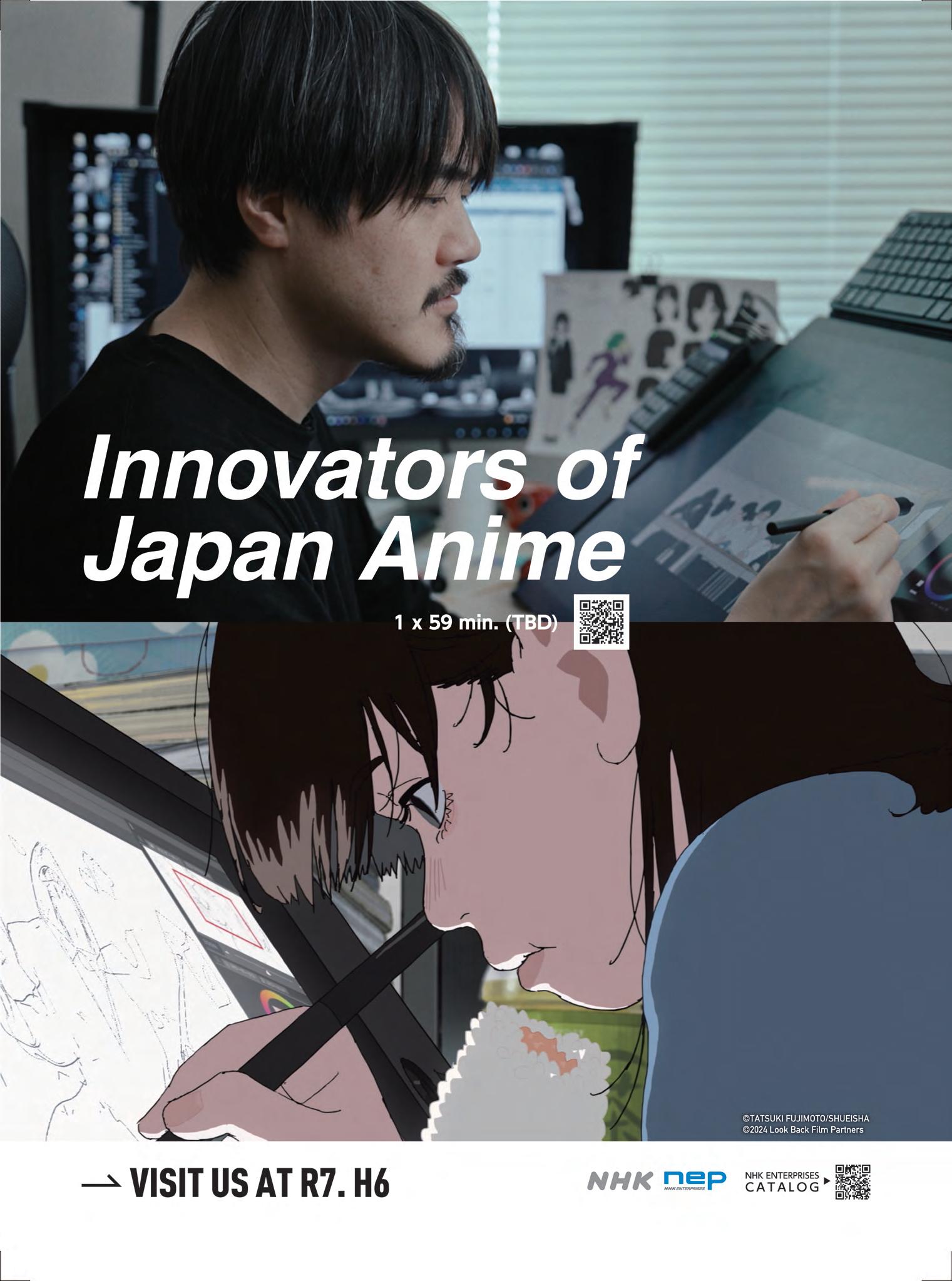
New Dominion Pictures’ A Haunting features first-person accounts and dramatic re-creations of encounters with spirits. Ice Cold Killers tells stories of deadly encounters in the frozen wilderness. FantomWorks showcases the technical skill and personal journeys of automotive craftsmen. “These titles each tap a globally popular genre—paranormal, true crime and automotive reality—while delivering high-quality, hour-long episodes that require minimal localization,” says Kristen Eppley, executive VP of distribution. “Their strong visual hooks—ghostly atmospheres, icy wilderness, garage workshops—make them instantly marketable, and the large episode counts give buyers flexible programming options and long-term value. Together, they offer a ready-made, crossgenre package that appeals to diverse audiences.”
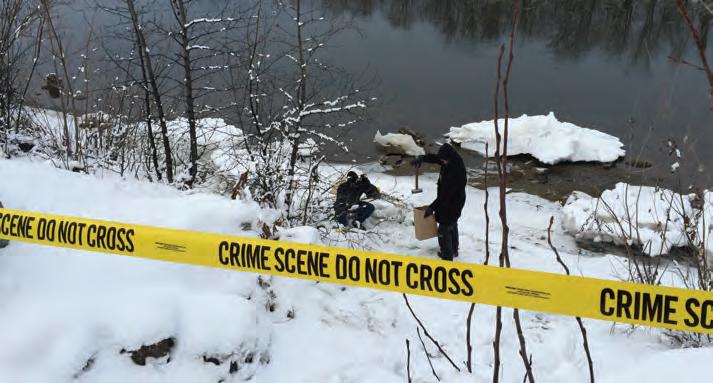
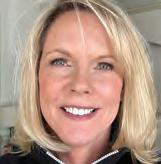
Innovators of Japan Anime / Documentary of teamLab (w.t.)
NHK Enterprises’ Innovators of Japan Anime not only captures Kiyotaka Oshiyama’s personal creative process but also offers a rare look inside MAPPA, the studio behind worldwide anime hits like Chainsaw Man, Attack on Titan and Jujutsu Kaisen. “This program appeals both as a cultural deep dive and as premium content for platforms seeking anime-related documentaries with proven global demand,” says Shuji Yamada, deputy manager at NHK Enterprises. Documentary of teamLab (w.t.) heads inside the teamLab Phenomena Abu Dhabi. It captures an exclusive three-year journey inside teamLab’s philosophy, artistry and technological breakthroughs. “At MIPCOM, we aim to present NHK’s full spectrum of creativity—programming that is rich, varied and globally relevant,” says Yamada.
“Our mission is to present a rich slate of multi-genre, multilingual programming that reaches audiences worldwide.”
—Kristen Eppley

“In commemorating 100 years of Japanese broadcasting, we see it as our responsibility and privilege to share not only our history but also our vision for the future of global storytelling.”
—Shuji Yamada

The White House / I Bought it at Auction with Sarah Beeny / #CoupleChallenge
Passion Distribution arrives at MIPCOM with a slate that aims to “cut through the noise and grab audience attention,” says Nick Tanner, director of sales and co-productions. The White House is a new docudrama from Nutopia about America’s most iconic building and its residents. I Bought it at Auction with Sarah Beeny dives into the booming world of property auctions. In the reality show #CoupleChallenge, celebrity duos battle in intense physical and mental challenges for a massive cash prize. “Passion Distribution’s mission is to champion bold, genre-defining non-scripted content, formats and IP,” Tanner says. “Our aim is always to push boundaries and provide fresh perspectives in our core genres of factual entertainment, lifestyle, blue-chip series and documentaries.”
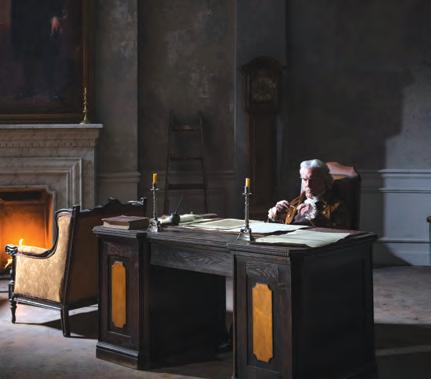
“At MIPCOM 2025, we aim to deepen our existing global partnerships and forge new connections for distribution, development, our digital channels and production ventures with UpStream Media.”
—Nick
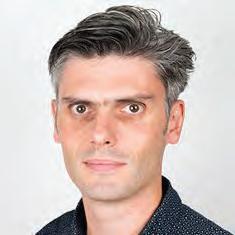
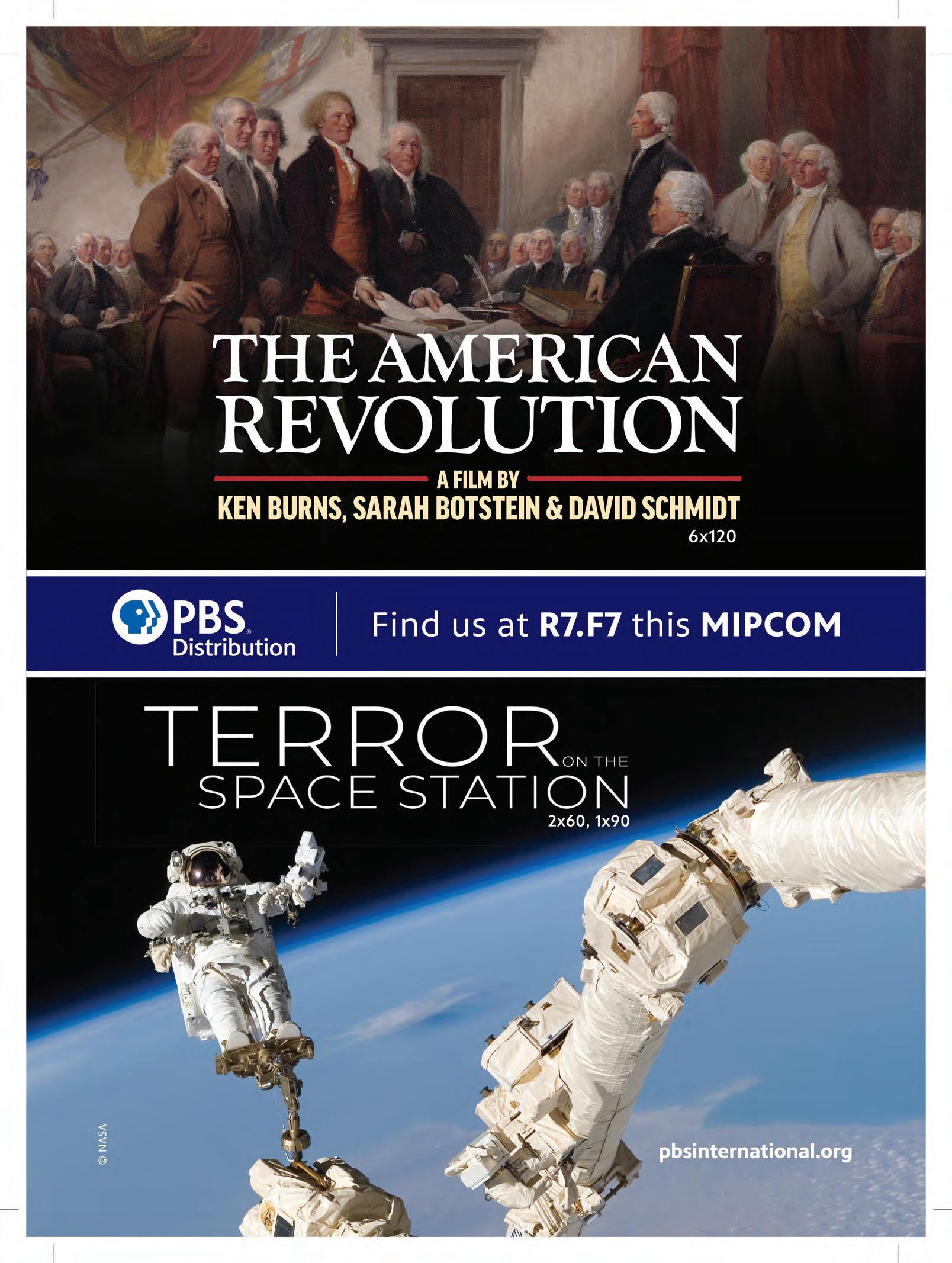
The American Revolution / Terror on the Space Station / The Hills are Alive: A Year at Kylemore Abbey
PBS Distribution has on offer The American Revolution, a film by Ken Burns, Sarah Botstein and David Schmidt about the 13 American colonies that united in rebellion and won an eightyear war to secure their independence. Terror on the Space Station reveals the most terrifying moments aboard the International Space Station. The Hills are Alive: A Year at Kylemore Abbey follows a heritage site in Ireland run by Benedictine nuns. “PBS Distribution is proud to present a powerful slate of new programming that exemplifies the values and variety of world-class storytelling, global relevance and enduring appeal,” says Joe Barrett, VP of global sales. “Each of these series offers a unique lens on extraordinary subjects, told by master filmmakers and expert voices and designed to resonate deeply with audiences worldwide.”
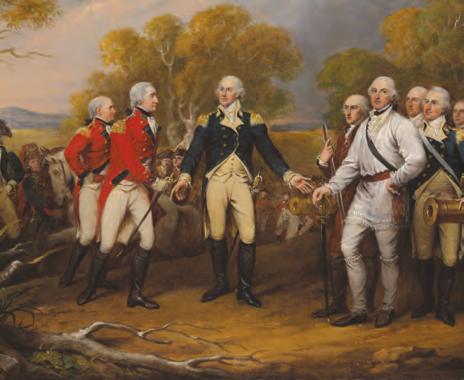
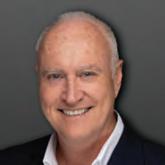
“At
MIPCOM, our mission remains rooted in bringing powerful, thoughtprovoking and globally relevant storytelling to audiences around the world.”
—Joe Barrett
Escape from Chernobyl: 48 Hours That Changed the World / The Ozempic Effect: Beyond the Waistline / China’s Wild Secrets
Whether looking back at the Chernobyl nuclear disaster, studying the Ozempic revolution or uncovering natural wonders, TVF International’s latest titles boast “a ‘must-have’ star quality for broadcasters,” says Poppy McAlister, head of the distributor. “An anniversary, a headline grabber, a global talent attached. They represent the best of TVF’s core genres: history, wildlife and world affairs.” Joining Escape from Chernobyl: 48 Hours That Changed the World and The Ozempic Effect: Beyond the Waistline at the top of the company’s slate is China’s Wild Secrets, narrated by Stephen Fry, taking viewers on a journey into the hidden wildlife havens of China. “MIPCOM is always a fantastic opportunity to find new partners or ways to collaborate with existing partners to bring more outstanding factual content to life,” McAlister says.

Pharaohs at War / Into the Universe / Indonesia’s Volcanic Islands
Pharaohs at War, distributed by ZDF Studios, tells the history of ancient Egypt and brings the wars of the pharaohs to life.
“Across four captivating episodes, we take viewers on an immersive journey of discovery, re-creating the battles that shaped one of the greatest civilizations in history,” says Ralf Rückauer, VP Unscripted. Into the Universe delves into astronomical enigmas, exploring the cycles that shape the sky— from the birth of spiral galaxies to the deaths of massive stars. Indonesia’s Volcanic Islands brings a blend of natural wonder and environmental urgency and offers access to remote habitats and rare animal behavior. “With stunning cinematography and cinematic storytelling, it delivers a visually immersive experience,” Rückauer says. “Its powerful themes of biodiversity and conservation resonate worldwide.”

“Alongside
the sale of brand-new completed
tape, we have a number
of projects at the development/ presale stage for which we’ll be looking for partners.”
—Poppy McAlister
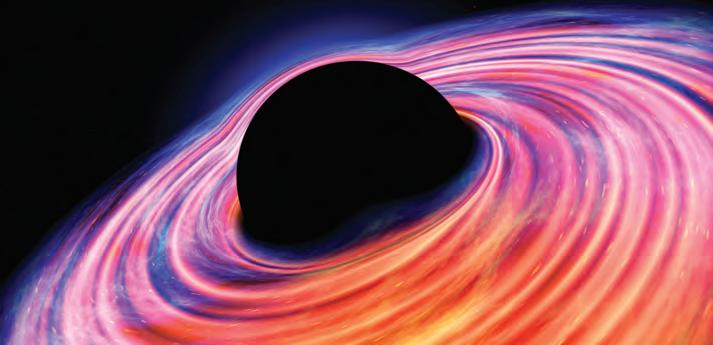

“We’re showcasing a slate of standout documentaries—from visually stunning nature series to thought-provoking science and history titles—that are designed to resonate with diverse audiences across platforms.”
—Ralf Rückauer
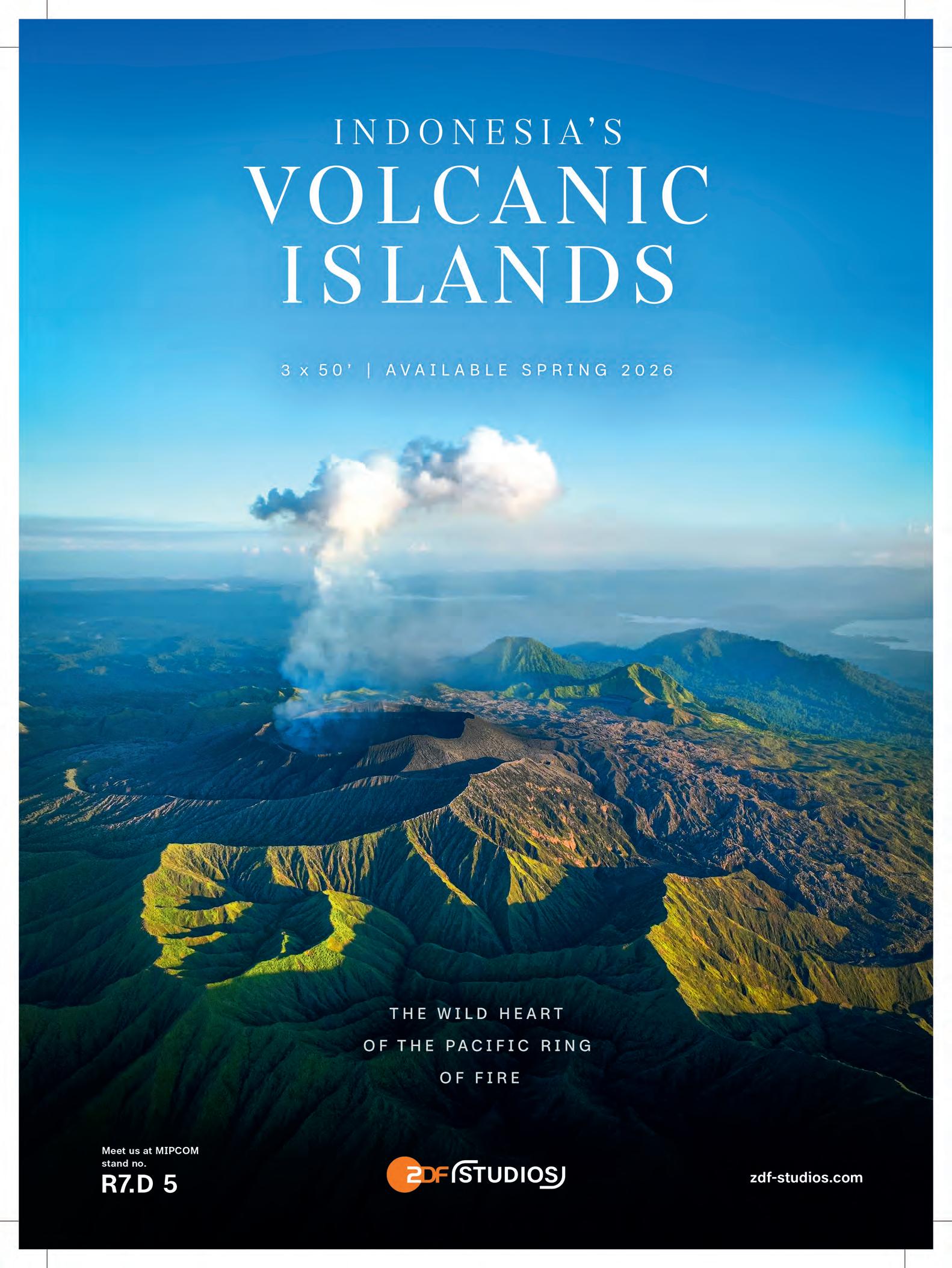

By Mansha Daswani
The overall assessment of the state of the factual business, as per our latest temperature check of the distribution sector, is “healthier than most.” Not as plagued as kids or drama, not quite smooth sailing either, but if you’re prepared and able to pivot, there are still plenty of opportunities.
“We are witnessing a clear upward trend in factual programming—we just have to wait for it to start,” quips Ralf Rückauer, VP Unscripted at ZDF Studios. “The industry is currently experiencing a turbulent phase. Rising costs, market disruption, declining budgets and order volumes, and competition from new production methods, content creators and AI are causing major changes in our business. However, we see opportunities for the documentary genre. Those who produce outstanding films, verify facts carefully, provide context and background information and master storytelling and dramaturgy—those who strive for quality—still have a chance in this industry.”
PBS is facing its own complicated challenges in the U.S. as it deals with the elimination of its government funding, but Joe Barrett, VP of sales at commercial arm PBS Distribution, sees the overall factual landscape as healthy.
“It is certainly not without its challenges, of course, but there is continued growth projected. My optimism is driven by the voracious appetite of viewers on traditional networks, streaming services and ad-supported platforms who still crave authentic, compelling stories.
Audiences are drawn to content that inspires, educates and offers insight into a range of issues and topics. Meeting this demand is at the heart of PBS Distribution’s mandate and guides our strategy to deliver an extensive and engaging collection of titles to the global marketplace.”
Macro industry trends notwithstanding, “demand remains high for differentiated, high-quality factual TV content,” agrees Nick Tanner, director of sales and copro ductions at Passion Distribution, a division of the Tinopolis Group. “Unseen worlds, discoveries, untold stories and perspectives are crucial to the success of new shows. I believe this applies across genres, including factualentertainment formats, lifestyle or crime.”
From the perspective of the well-established German independent Autentic, which operates across production, distribution and channels, the business is “healthier than other industry sectors,” says Patrick Hörl, managing director—”provided you are ready and able to adapt to the modified role of distributors in a predominantly digital environment.”
As Hörl indicates, business as usual is not really an option anymore, a sentiment expressed by everyone surveyed for this piece.
“As partnerships and diversification have become almost fundamental for both producers and broadcasters, distributors have also needed to adapt by tapping into non-traditional methods of monetizing content,” says Claire Runham, head of acquisitions at BossaNova Media. “It has helped to work in ways that eliminate the need to rely on new content
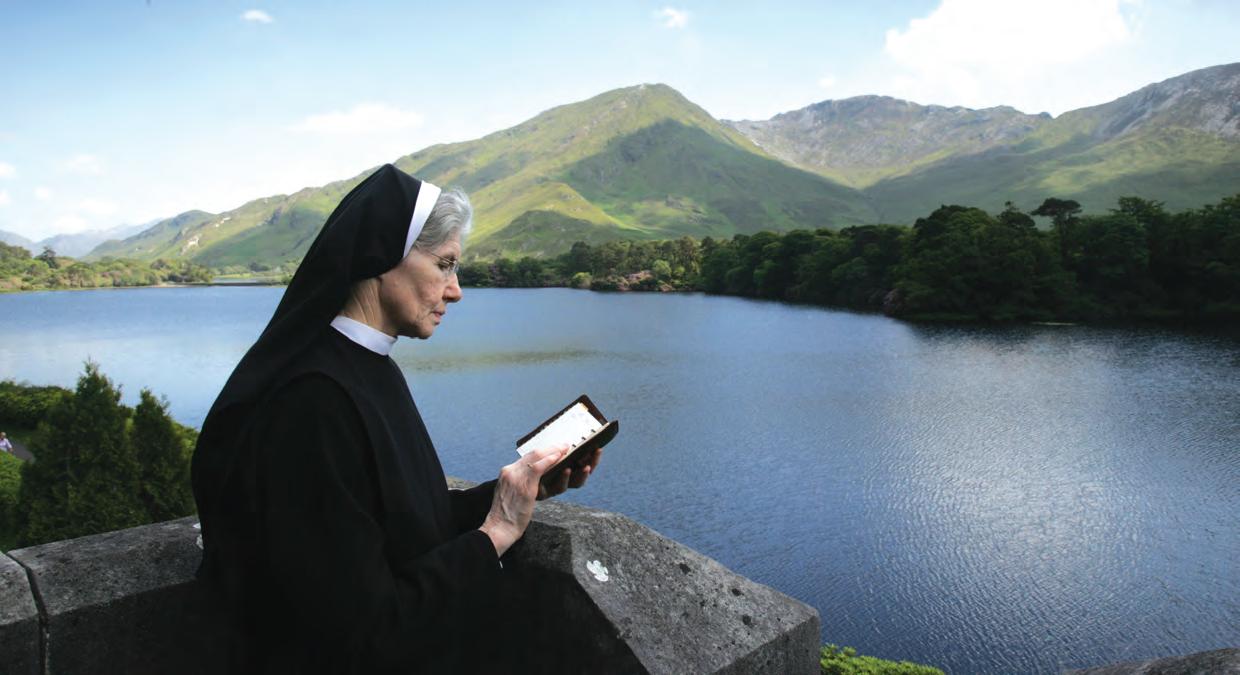
coming fully funded from a single broadcaster, whether that’s by preselling and/or maximizing the potential of deep libraries. With a fairly consistent global demand for unscripted programming, it has also helped that factual content can be produced on manageable budgets and can be turned around quickly by comparison to most scripted projects.”
Per Hörl, volume, in particular, has become paramount. “Your systems need to be prepared to handle both individual titles and large packages. You need to be able to track reven ue-share deals in order to fully understand your customers’ needs. And you must be able to invest in content upfront. All in all, it looks like smaller distributors are suffering under these requirements. The bigger ones adapt and benefit.”
According to Runham, one of the biggest pressure points in the business for distributors is being able to deliver a steady supply of “enough new and relevant content for traditional linear broadcasters. We tackle that by commissioning our own, by providing broadcaster
briefs to producers we know can deliver and by getting involved in projects early on so that we can help to shape the idea for international buyers. It’s something that we’ve been doing for many, many years now, so while the industry is becoming more reliant on models that rely on partnerships, we’ve already got something established that works well.”
For Hörl, there is nothing more important than producer partnerships. “We often co-develop series with them. Collaborating on how to tell stories from a very early stage of development proves to be key for us. Over time, we have built relationships with several production companies that we co-produce with on a very regular basis, year after year.”
BossaNova takes a collaborative approach to its producer partnerships, Runham says. “We like to board projects early, but it’s not essential. We need a mixed economy of commercial models to sustain the business, so if a project already has a partner attached and a budget deficit, for example, this is also something we’ll consider. We treat everything on a case-bycase basis.”

PBS Distribution, similarly, can board projects at any stage, Barrett says, “from fully completed films to early-stage concepts still in development. In addition to supporting creative development, we work with producers to secure co-financing for the right projects, recognizing that co-production and presales remain essential elements of documentary funding. We also initiate projects by sharing internally developed concepts with production companies, ensuring they align with both our clients’ needs and our evolving catalog. At the core of all our partnerships is a deeply collaborative approach.”
The team at Passion benefits from the network of production companies within the Tinopolis Group, Tanner
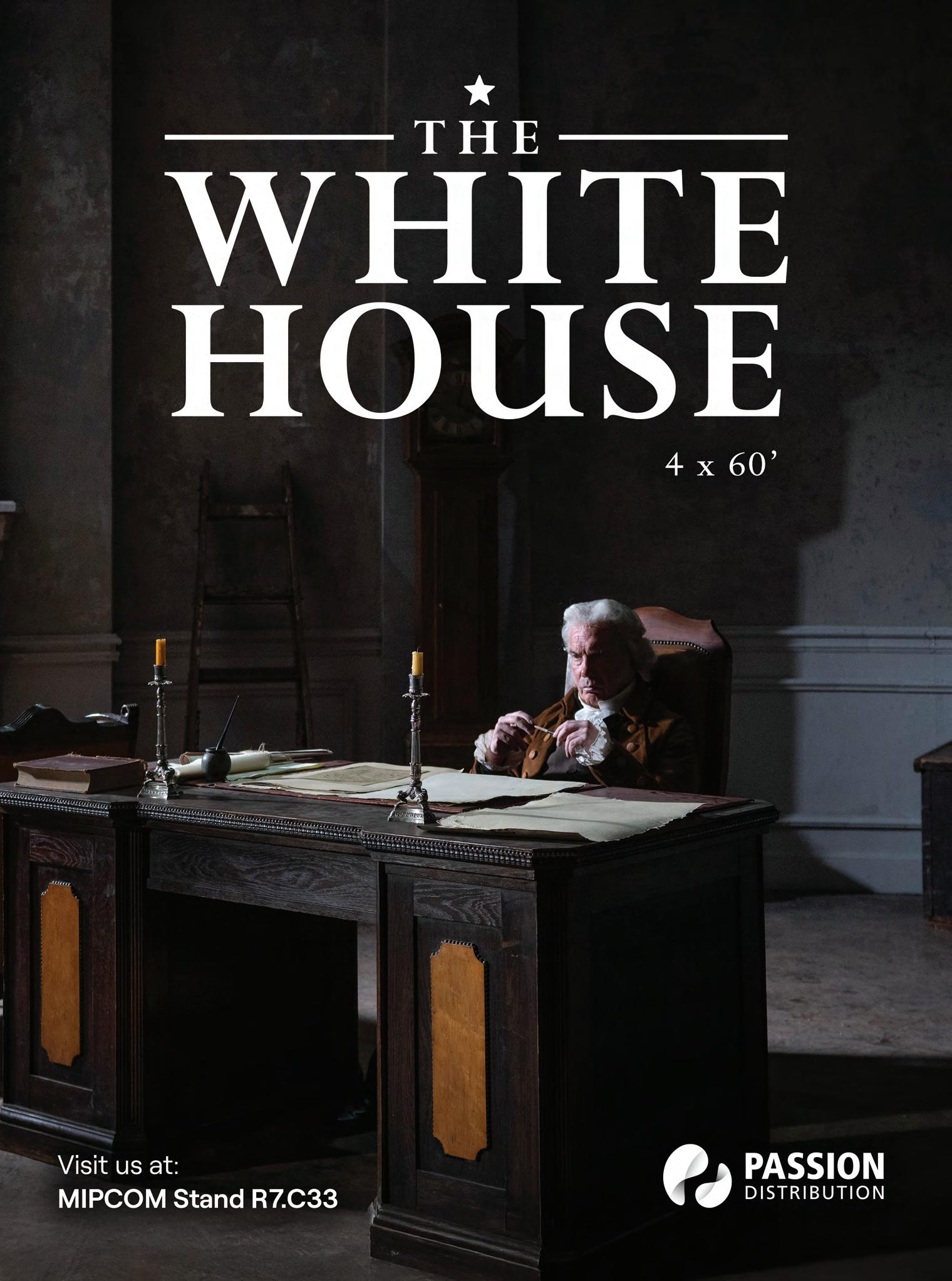
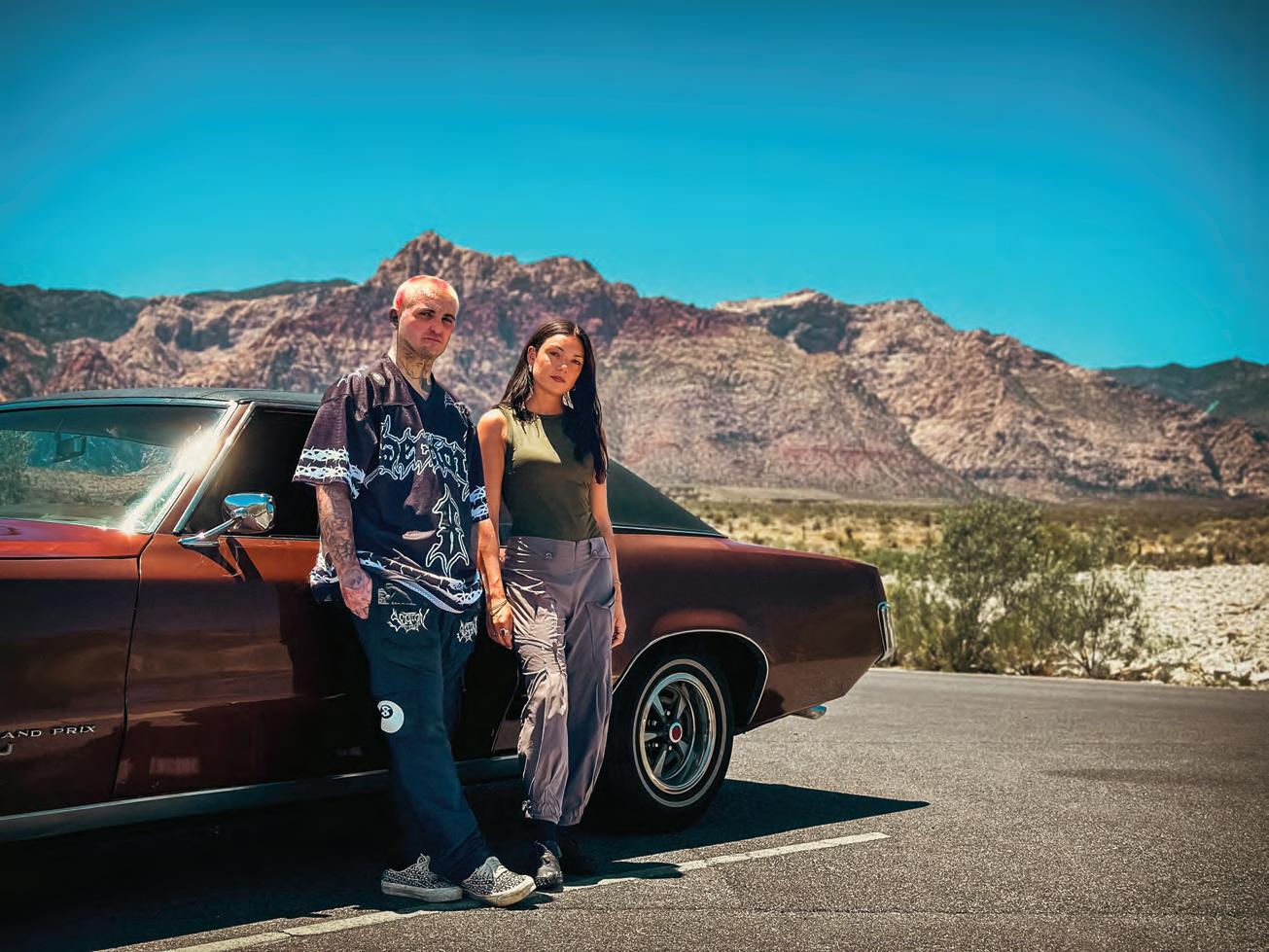
Journalist Tir Dhondy visits Las Vegas in Passion Distribution’s What Happens in Vegas.
notes. “Passion is laser-focused on supporting ideas that can stand out in the marketplace. Our energy and resources are deployed on projects that will generate buzz and stand apart.”
Tanner says that early access to projects “allows us to take a strategic, holistic approach to bringing a project to market. The role of the distributor is evolving fast; we’re a commercial content partner, and often now an investor, so supporting and guiding a project from the early stage is crucial in that process. We love to be involved from the very beginning and help shows come to life.”
Distributors are also helping producers maximize the value of their content for the long tail, with AVOD becoming a lucrative opportunity for many distributors.
“Placing our content on AVOD platforms has become an important pillar of our business,” says Hörl at Autentic. “We are constantly scanning the market for new opportunities to work with AVOD platforms. Beyond economic relevance, AVOD is always great if you want to find out more about what people really want to see.”
“The interesting thing about AVOD is that it allows you to get to know your content in a whole new way,” ZDF Studios’ Rückauer adds. “Secret footprints on the sandy beach? A tiny fly landing on the nose of a giant anaconda? Details you’ve never noticed before. It’s amazing how closely your AVOD audience pays attention to every single detail, shares them with others and discusses them. Communities on our YouTube channels, such as Get.factual and the latest, Get.history, are very responsive and provide us with valuable feedback. They also present us with good opportunities to find more ‘gold’ in our programs.”
BossaNova has taken a more cautious approach to AVOD, Runham explains, due to its comparatively young catalog; the company is on the heels of its fifth anniversary.
“A lot of the content we represent isn’t that old either,” Runham says. “We’re careful not to exploit via AVOD too soon, because it may not be the most lucrative path to take
in the first years, depending on the project. There are certain tick boxes that show success stories for AVOD. High volume is one of the key asks, and as a young company, we haven’t had the time yet to build much volume from a single IP. There are some examples to mention (Borderforce USA, Paramedics: On the Frontline, Caught on Dashcam), but my initial point about it being too soon in the lifespan of the programs comes back into play. Some of our library content is starting to be exploited on AVOD platforms, and we’re beginning to acquire older content with volume in order to tap into this revenue stream.”
Barrett describes PBS Distribution’s AVOD business as “emerging” both in the U.S. and internationally. “We have found initial success, like many content companies, with the ad-supported platforms breathing new life into our catalog.”
Passion Distribution has a sister company, UpStream Media, that serves as its “in-house solution for monetizing our content library via AVOD platforms,” Tanner says. “We also continue to see strong success with third-party networks. We view library exploitation as a mixed economy; we carefully consider the best approach for each show we represent.”
Within AVOD, FAST is proving to be a significant business for Autentic, with the company now operating seven channels, Hörl says. “And we won’t stop here. We are determined to grow this business alongside our existing sales business. As we entered the scene early, we can now benefit from a lot of valuable experiences. Growth in this field is not a straight road. You have to constantly monitor which feeds are actually worth investing in. But we are happy to see that FAST has grown into a real business opportunity with its own legitimate position in the market.”
ZDF Studios was also early to the FAST game, Rückauer says. “In our experience, a strong brand or well-known strand is almost essential when it comes to operating FAST channels, given the level of competition. We started
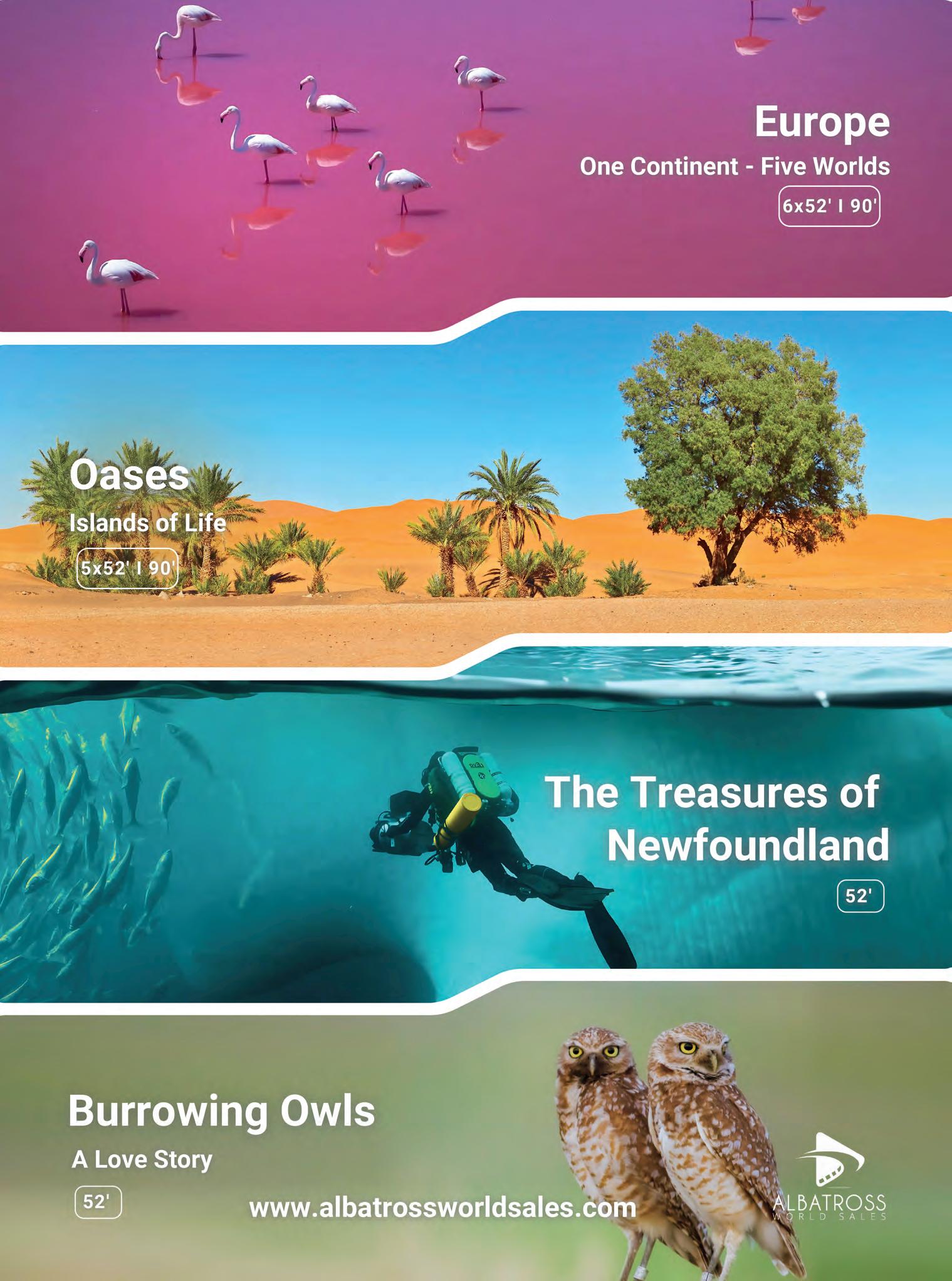

History remains a key pillar in the ZDF Studios lineup with titles such as Pharaohs at War
launching FAST channels very early on and have no intention of stopping.”
Tanner agrees that strong single IPs can make an impact in FAST, with UpStream’s own Mech+ channel, featuring Robot Wars, widely distributed on platforms.
PBS Distribution has a mix of single-IP and multi-title services, Barrett says, “curated to target niche audiences on commercial FAST platforms.”
The goal, ultimately, is to maximize every opportunity for a piece of IP, given the challenges that remain across the business.
“Passion Distribution has become a leader in digital distribution and original content for YouTube and social media since establishing our digital subsidiary, UpStream Media,” Tanner says. “We have a significant and growing online audience and multiple direct-to-consumer initiatives. At the inflection point between long-form and digitalfirst content, we are incredibly well-placed to ensure our content reaches viewers where they want it.”
“Economic resilience is key right now,” Hörl says. “That’s why our content investments are focused on returnable series, building brands and [titles] that perform well regardless of the particular path to the viewer. We are determined to grow Autentic’s business. Autentic’s success has always been going hand in hand with lasting, successful partnerships with other companies in the global market. We are convinced that this time of transition creates spaces for new partnerships.”
“We want to be a reliable partner that makes tailormade offers and delivers quickly and accurately,” says Rückauer at ZDF Studios. “This applies whether we are working with classic television, streaming portals, format partners or our own VOD and FAST channels. To achieve this, we must adapt to new market conditions quickly and flexibly.”
Runham says that the team at BossaNova will continue to do what it does best—maximize producer returns while meeting the needs of the market, “and we’ll also continue to think outside the box and find new collaborations. We’re in the process of commissioning some content for YouTube, as well as hosting our annual Development Day just prior to MIPCOM. Continuing to
be innovative and bring people together is on the agenda for the year ahead.”
The year ahead will also see everyone in the business coming to grips with AI in one way or another.
“AI is already changing the filmmaking business in many ways,” Barrett says. “AI is enabling these incredibly powerful tools and putting them in the hands of more content creators. Technological advances in production are the most obvious— from script development to postproduction, VFX and language translation. However, while producers are using it to reduce production costs, broadcasters and digital platforms are navigating what is and is not acceptable in creative output. It’s an exciting time that will require both considered and flexible thinking in an AI environment.”
“There are two different fields here,” Rückauer says. “On the one hand, there is generative AI, which can assist with film production or creating local-language versions. On the other hand, there is the more technical side, involving database evaluation, workflow automation, process pattern recognition and maintaining a ‘sales machine’ amid ever-increasing volumes. We are having positive initial experiences in both areas. For instance, we produced several language versions of our 35-part series Great Inventions for some territories. We have also refurbished our history series The Ascent of Civili zation and significantly improved some of the images and text. We would not have achieved this without AI. When working with AI, we always use natural intelligence to carefully check what AI has created, in collaboration with our subsidiary ZDF Digital. This is essential for us.”
Passion is cautiously trialing AI in workflows, Tanner says, and using it to “create on-screen dramatic reconstructions” in an upcoming production.
Hörl says AI is having an impact on every stage of a piece of content’s life cycle. “From developing new ideas all the way through production, scheduling and optimization of sales to digesting performance data, helping us to better detect opportunities for future successes. One area that Autentic pays a lot of attention to is offering content owners a chance to monetize their content by making their shows available to AI learning engines. We want to provide a safe legal framework for such transactions that helps to protect the rights of factual content owners.”
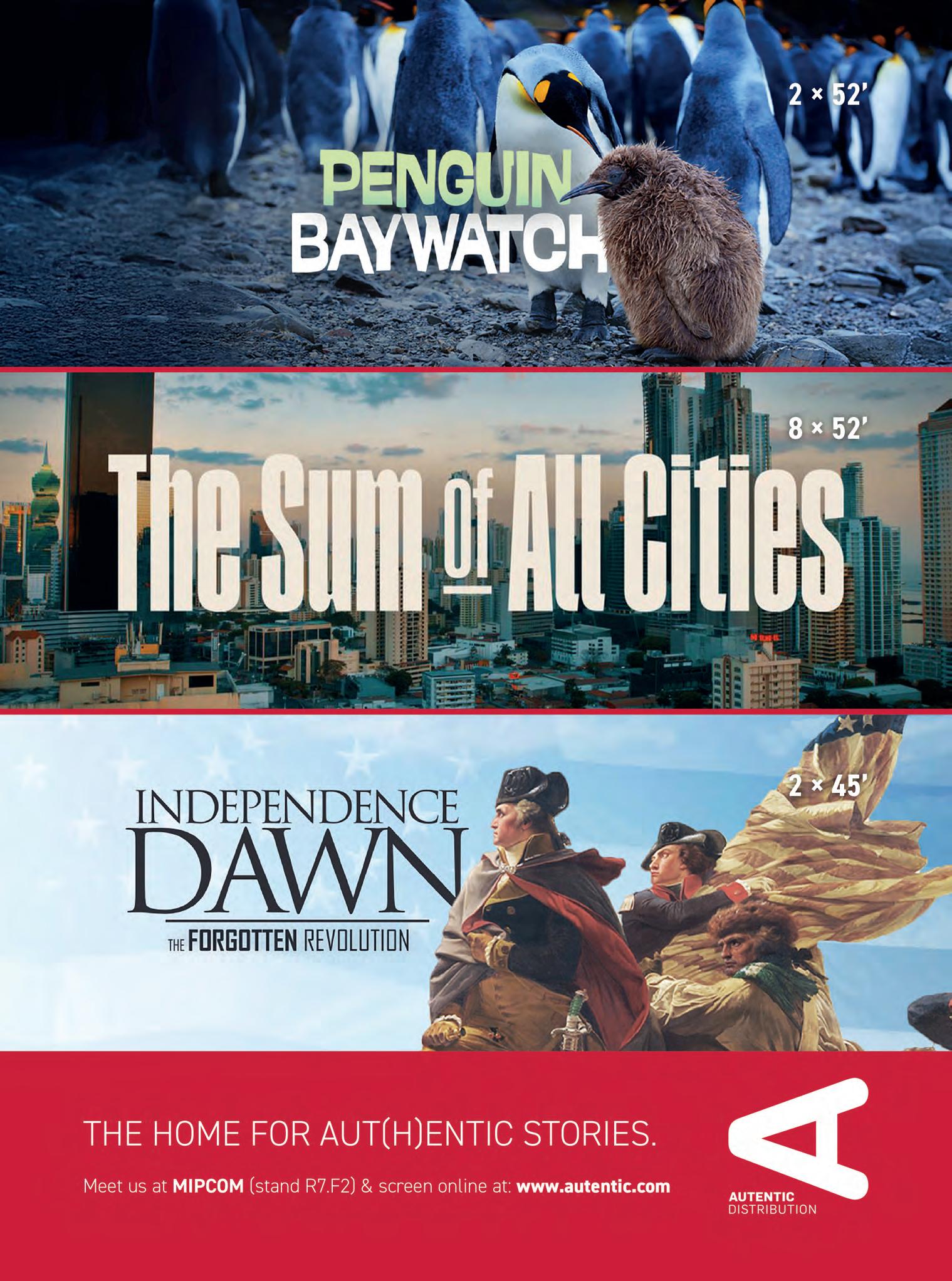

Thanks to the pandemic and the streaming wars, the natural history filmmaking space experienced a boom at the start of this decade, with seemingly everyone wanting to enter the blue-chip wildlife market. Amid the overall retrenchment by streamers and budget cuts across the board, there certainly aren’t anywhere near as many new high-end wildlife series hitting the market, but audiences are no less enthralled.
“Across factual programming, acquisitions and commissions have slowed dramatically, with buyers taking longer to greenlight projects and scrutinizing budgets more carefully,” says Anne Olzmann, managing director of Albatross World Sales, an indie with a significant natural history slate. “In a time of economic and scheduling uncertainty, it’s challenging to launch a major production that may take years to complete. As a result, many broadcasters and streamers are consolidating their slots and being more selective about the projects they back.”
The genre, however, remains a consistent high performer, Olzmann notes. “These films continue to travel exceptionally well because they are largely non-political, visually stunning and typically family friendly—qualities that help them perform across cultures and languages. On linear television, classic blue-chip wildlife films with pure natural history focus are still very much in demand, as audiences seek the grandeur and timelessness they provide.”
On the linear side, it is the pubcasters that are upholding the entire wildlife filmmaking segment. They have long worked together to bring their audiences blue-chip productions on manageable budgets.
NHK is a well-regarded partner in international productions, having recently collaborated with Doclights and NDR on Japan-based stories such as Mighty Monkeys, Gift from the Ice—Japan’s Wild North and IRIOMOTE—The Fabric of Life “The deep connections and extensive footage we have access to in Japan are appealing to European produc ers,”
says Masa Hayakawa, executive producer of Hidden Japan, an upcoming NHK series, and former head of its natural history unit.
“Everybody is suffering from budget cuts,” says Gernot Lercher, the head of the natural history unit at ORF, who commissions for the Universum brand. “No co-production means no documentary. Putting money together is the only way to get things done.”
“International co-financing and partnerships—between public broadcasters, global streamers and even NGOs or brands—have become essential for premium wildlife productions,” says Olzmann. “They enable projects to reach the cinematic scale and production values audiences now expect while spreading the considerable financial risk. We’re also see ing more structured deals in which early partners secure specific rights or regional windows, giving the production financial stability from the outset and ensuring it stays competitive in the global market.”
Europe: One Continent—Five Worlds, which Albatross is launching at MIPCOM, was commissioned by WDR in Ger many for ARD and has a raft of other partners on board: ARTE, NDR, HR, RBB, ORF, SVT, DR, NRK and Yle.
“This kind of broad collaboration reflects how ambitious wildlife documentaries are now funded and distributed: through alliances that combine resources, expand reach and guarantee a truly international audience,” Olzmann explains.
“International co-production is vital in two key aspects: financially and creatively,” adds Hayakawa. “While NHK has been able to maintain its wildlife programming slots, we, too, face the challenge of shrinking budgets. Collaborating with our international partners enables us to pool funding, talent and resources—allowing us to produce more impactful and ambitious programs. Even more important is the creative aspect of co-production. These collaborations bring fresh ideas and new perspectives, helping us keep our content engaging and relevant for the global audience.”

As for what audiences want, it partly depends on where they are watching. “In the online space, the boundaries are loosening a bit,” Olzmann notes. “Streamers and digital-first platforms are more open to dynamic filmmaking styles, sometimes incorporating strong human elements or hybrid formats, as long as the core natural history remains compelling. This creates room for creative approaches that might not have fit the traditional blue-chip mold, while still delivering the spectacle and storytelling audiences expect.”
Hayakawa has been part of the juries at Wildscreen and Jackson Wild and has seen an increase in series over one-off, personal-storytelling docs. “I believe this shift is largely driven by tighter broadcaster budgets, fewer available slots and the preference—or perhaps necessity—of streaming platforms for serialized content over stand-alone films,” he says.
Olzmann also references the challenges of the singular doc space. “Traditional ‘place films’—those built solely around a single location or habitat—are becoming harder to sell unless the cinematography is truly outstanding and offers a striking new visual perspective,” Olzmann says. “There isn’t one dominant theme driving commissions at the moment, but the universal priority is strong, distinctive storytelling. Broadcasters and streamers are increasingly seeking films that can stand out in their crowded on-demand and catch-up services. Many have shifted to an online-first strategy, and their natural history libraries are already extensive, given their long shelf life. That means they can be very selective. For a new title to gain attention, it must offer something genuinely unique: a compelling narrative arc, memorable animal characters or a fresh conceptual twist that resonates with the audience. In short, buyers are less interested in beautifully shot but generic nature footage. They want stories that surprise, move and keep audiences watching.”
ORF’s Lercher, too, has seen a move away from the “traditional blue-chip animal behavior storytelling; films exclusively focused on animal behavior. The audience is increasingly interested in the human impact on nature. They want to learn more about conservation and get an idea of how each of us can help save the planet. Times are over for just focusing exclusively on the idyllic and exotic places. Today’s audiences are very open to and even appreciate seeing tensions and conflicts between civilization and nature.”
ITV Studios lands at MIPCOM with Extreme Earth, which “delivers a groundbreaking and timely look at how nature is fighting back against today’s extreme weather, showcasing the
ingenuity and resilience of the natural world,” says Tom Clark, executive VP for global partnerships and commercial strategy.
Embracing technology to deliver new ways of film ing wildlife has been paramount. NHK has a long heritage of research and development in filming technology, deploying that expertise “to capture the world’s first-ever video footage of a group of coelacanths— along with behavior indicative of reproduction—all in stunning 8K resolution,” Hayakawa says.
Wildlife has long been at the forefront of implementing the best filmmaking technology, Olzmann says.
“Out of all documentary genres, this one needs to be the most visually stunning to stand out. While cameras are constantly being developed to perfection—from thermal imagery and racer drones to 360-degree capture and 8K resolution—equally transformative advances in camera systems and techniques are expanding what we can capture. Europe: One Continent—Five Worlds embraced this cuttingedge approach, using state-of-the-art camera systems and specialized optics to reveal its landscapes and wildlife in unprecedented detail. Agile drones and long-lens aerial systems opened dynamic new angles without disturbing nature, while motion-controlled time-lapse rigs and robotic sliders created smooth, immersive movements. A deep-sea submersible and advanced underwater housings enabled filming thousands of meters below the surface, and high-resolution camera traps captured elusive species around the clock.”
As filmmakers devise new ways to capture the real world, AI’s impact on the business looms.
Olzmann notes, “We’re only just starting to explore where its role might begin—in the scripting phase, in postproduction by refining or enhancing footage or by the creation of entirely synthetic visuals? Each of these scenarios presents distinct challenges, both creatively and ethically. In the wildlife genre, there is a shared sense of caution among both producers and commissioners. Wildlife documentaries are built on the principles of authenticity and trust—bringing audiences genuine, unscripted moments from the natural world. Viewers expect to see reality as it happens, not something artificially constructed. The use of AI-generated visuals, even with good intentions, risks undermining this trust and eroding the connection between filmmakers and their audience.”
Ultimately, for wildlife in particular, transparency will be paramount, Olzmann says. “Viewers should know when and how AI has been used, and industry-wide standards will be essential to maintaining trust. Over time, AI will likely become just another tool in the production process. However, in wildlife filmmaking, where authenticity is paramount, its use will remain limited to preserve the core values of the genre.”
NHK does not use AI within natural history, Hayakawa says, “but I can understand its potential. For example, AI could be useful in selecting scenes from the vast amount of footage we capture, or in refining the wording of scripts. However, when it comes to the creative aspects—particularly storytelling—I believe that human insight and intuition remain essential. The heart of natural history filmmaking lies in how we interpret and emotionally connect with the natural world, and that’s something only people can truly bring to life.”

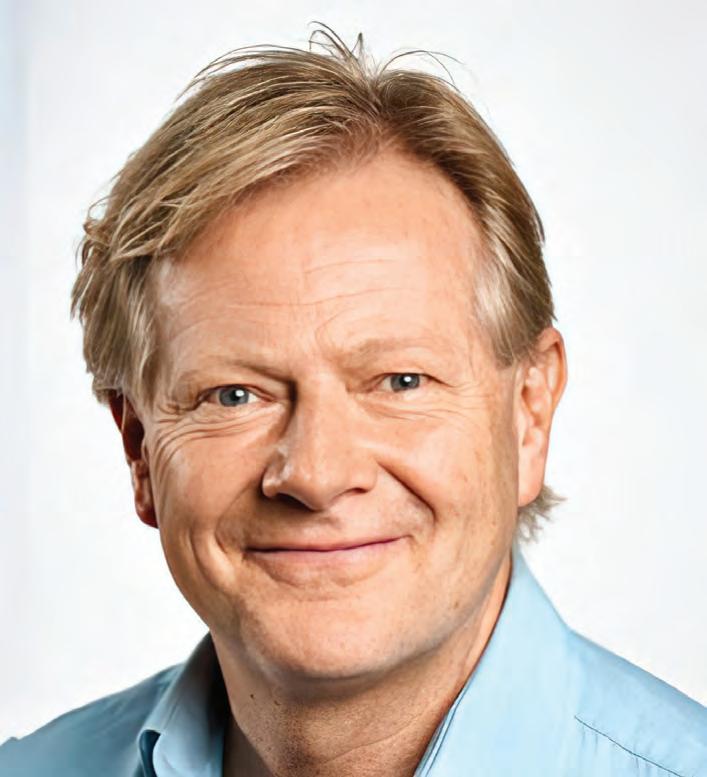
By Mansha Daswani
From chronicling a landmark new excavation at Pompeii to charting the allegations against Sean “Diddy” Combs to delivering unprecedented access to St Bartholomew’s Hospital in London, Lion Television has built up an eclectic factual slate over its 25-year-plus history. Richard Bradley, co-founder and chief creative officer, is clear-eyed about the current state of the documentary commissioning sector but remains optimistic about the industry’s future. Speaking at the TV Real Festival, Bradley weighed in on the importance of having co-production skills, deploying content on social media, exploring the use of AI and the opportunities in brand-funded storytelling.
TV REAL: How do you assess the state of the factual commissioning market in the U.S. and the U.K.?
BRADLEY: We are in strangely tough times. Certainly, across the U.S. and U.K. markets, people have become more riskaverse, making fewer decisions, postponing decisions and battening down the hatches a bit around the familiar. The question is, will this trend be here to stay, or is it cyclical? The difficult news is that it probably isn’t going to come back to the way it was, and what we’re seeing at the moment is the way of the future. There’s going to be fewer
decisions, fewer commissions made and probably a more risk-averse decision-making process.
TV REAL: You have a fantastic pedigree in co-productions. Are you finding those skill sets to be particularly handy now, given that everyone perhaps wants to co-produce more?
BRADLEY: It was thought to be a slightly laborious way to make television, piecing together the financing. But everyone now is a fan of co-production. Even some parties that in the past wouldn’t brook working with another partner are now looking at it. We have, for nearly 25 years, been coproducing in one way or another between broadcasters, sometimes between producers. Aside from the streamers, almost every project we do that is international is a co-production. We did a series on Pompeii, following the biggest excavation in a generation. We got the BBC, ARTE in France and Germany and PBS on board. It worked for all of them. We were able to come back again this year and do another episode. The co-producers came back. Co-production is certainly something we’re going to see a lot more of.
TV REAL: What are the keys to a successful co-production?
BRADLEY: Being transparent up front. You don’t want to sell one thing to one party and one to another. You don’t want to be making three different shows. Also working out post production—thinking about how you’re going to land it for everybody. Are you going to make one version for everybody, or two-thirds of the way through the edit, will you start making different versions? Factor in a good extra amount into the postproduction budget. And establish good relationships, because if you can do it successfully once with your co-production partners, it makes it much easier the second time around.
TV REAL: You have an incredibly diverse slate. Is there a through line for the kinds of projects you want Lion Television to be known for?
BRADLEY: We think of ourselves as a premium producer of smart, factual content. We do stories we feel have strong underpinnings of historical or journalistic research. We’re trying to find things that connect with audiences. We’ve always been thinking both local and global. Thinking beyond your immediate surroundings is essential now, in a world where opportunities are fewer and farther between.
TV REAL: Is true crime still dominating?
BRADLEY: It’s true crime and celebrity. When streamers and broadcasters say they want true crime, they actually mean American crime, with a bit of British crime. We are developing those stories, but the secret hope is that the big hits come from defeating the algorithm. If you look at the big drama hits of the last two years on Netflix, Baby Reindeer and Ado lescence, they are not things the algorithm would have told you to commission. And yet they connected. We spend quite a lot of time in our development team thinking not just about true crime and celebrity, but what is the other thing that they’re not thinking about that we can persuade them might start a new trend and broaden the slate?
TV REAL: What’s guiding your thinking on the history front, especially as you look to bring in younger audiences?

BRADLEY: We’re fortunate that at the youngest end, we have a comedy series called Horrible Histories , which brings comedy to history for the youngsters. We know that an audience comes to history. Young people are fascinated by ancient Egypt and the Romans. How do you tell those stories authentically? You don’t necessarily jet in an Anglo-American host to stand in front of the people who are doing the archaeology. You foreground the people doing it. The younger audience isn’t afraid of subtitles. They like authenticity. Archaeology can be one of the dullest things going, but if you’re there at the moment of discovery, you’ve got drama. So, authenticity, big stories and thinking freshly about history. It’s thinking imaginatively about it, but also listening to the audience. This audience wants authenticity and immediacy. If you can give them a ringside seat, which seems a funny thing to say about history, that helps.
TV REAL: Are you collaborating with your partners on additional content that can be used on social media?
BRADLEY: Absolutely. We work closely with Channel 4, and they now post shows on YouTube, embracing the platform rather than thinking of it as one that will steal the audience from terrestrial. That thinking is old thinking. Enjoy the fact that a whole new audience is coming to your content. We made Irresistible: Why We Can’t Stop Eating . The show went out on the BBC and it did really well; about [1.2 million for the premiere]. When we posted a 10-minute chunk on Instagram and TikTok, it garnered 23 million views in four or five days. There’s a whole young audience that is interested in the food we’re eating, but isn’t going to sit down to watch a scheduled show on TV. Every program we enter now, we also consider the additional content, which can almost break up the formality of TV and bring them a bit closer, giving it a more podcast-like vibe.
TV REAL: How important is it to have the backing of All3Media as you’re navigating a business that is changing so quickly?
BRADLEY: Facing this on your own is challenging because you don’t know where your next commission is going to come from or where the next trend is. Being part of a bigger group gives you that sense of a cushion, but also the combined expertise garnered from all the different companies, as well as a fantastic distribution network that has smart, digital intelligence so that you can sweat your franchises and programs as well as you can. It feels less chilly and less anxiety-inducing.
We’re finding synergies with companies within the group. We are co-producing a drama for Netflix, titled Legends , with Objective Media Fiction. That’s about undercover drug operatives in the 1990s. We pitched it to Netflix as a documentary series, and they didn’t buy it. We took it to another
All3Media group, and with Neil Forsyth, a great showrunner and writer, at the helm, it got commissioned as a drama. That sort of synergy is something we will be exploring.
TV REAL: How are you thinking about AI at Lion?
BRADLEY: We’re cautiously embracing it. [For example] animating a still in the blitz. We’re trying to look at AI consciously and as a tool rather than running away from it in horror and fear. We’re doing a project called When Socrates Meets Confucius, a co-production with a Chinese company. It imagines what would have happened if they’d met. We’ve taken all of their writings, fed them into a large language model and then fed all the images of them into AI. Through that, we are concocting the conversation they might’ve had if those two great philosophers had ever met in the past. That’s a really interesting use of AI.
TV REAL: What are the greatest growth opportunities that you’re eager to pursue?
BRADLEY: We’re looking at building out brands or franchises in interesting ways. Specials that can come out of things that you already know the audience is interested in. We have had some success with brand-funded programming. Advertisers are no longer spending as much on ad spots on TV. They’re going on digital, but they are still interested in those big audiences you can get. Last year, we did a big project with VELUX and Alan Cumming. That’s an area where the production skills and capabilities, the broadcasters and brands can get together to make some really interesting content.
Access is a really interesting area for people who are thinking about where the next opportunities might lie. When we took access to Pompeii to the broadcasters, they found it very hard to resist. Part of what I’m urging my friends and colleagues to do is find the things that the commissioners find impossible to resist. A commissioner once described their role as finding a thousand different ways to say no. To those of us out there who are on the other side of the fence, let’s put our thinking caps on and try to find ways to make them say yes. That underpins a lot of what we do in development. How do you take something into a broadcaster that they just won’t be able to resist? It’s getting harder, but it’s not impossible.
True crime, insider access, historical reenactments and uplifting factual entertainment feature in the latest edition of the TV Real Screenings Festival.
The documentary follows Isabella Rossellini in Italy, France, Spain and at her farm, capturing her artistry, charm, activism and playful spirit during a milestone season. (Escapade Media)
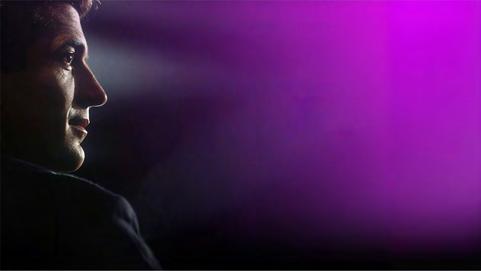
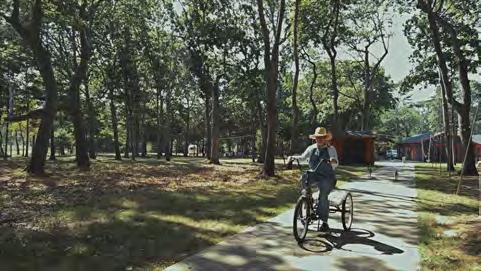
EverWonder’s documentary provides unprecedented archive footage and astonishing access to John F. Kennedy, Jr.’s life and legacy. (All3Media International)
A film by Ken Burns, Sarah Botstein and David Schmidt. Thirteen American colonies unite in rebellion, win an eight-year war to secure their independence and establish a new form of government that would inspire democratic movements at home and around the globe. (PBS Distribution)

Acclaimed chef, author and television personality Lara Lee embarks on a deeply personal journey across Indonesia, reconnecting with her ancestral roots through food, culture and tradition. (All3Media International)


A rare look into the creative process of animation filmmaker Kiyotaka Oshiyama ( Look Back ). Also features interviews with renowned creators from the world of anime. (NHK Enterprises)
Authentic docuseries following real firefighters via bodycams during dramatic rescues, offering raw insights into the daily lives of professional fire brigades. (ARD Plus)
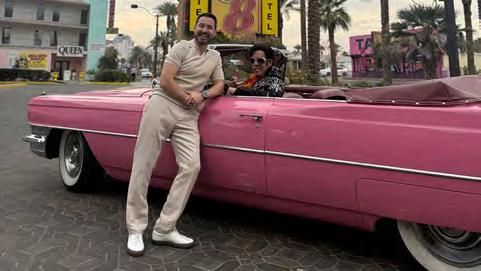
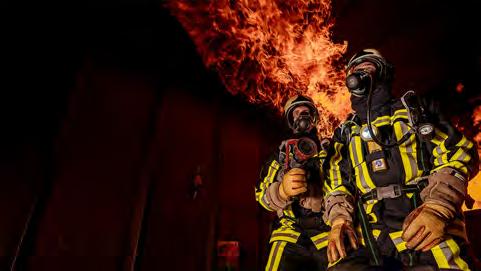
Actor Martin Compston takes viewers on an insider’s tour of Las Vegas, revealing the secrets, thrills and irresistible allure that make it the ultimate playground. (BossaNova Media)
These treasure hunters are on the search for a trove of missing gold coins that have a deep historical connection to the Red River Resistance. (BossaNova Media)
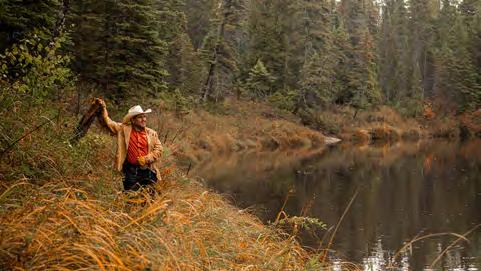
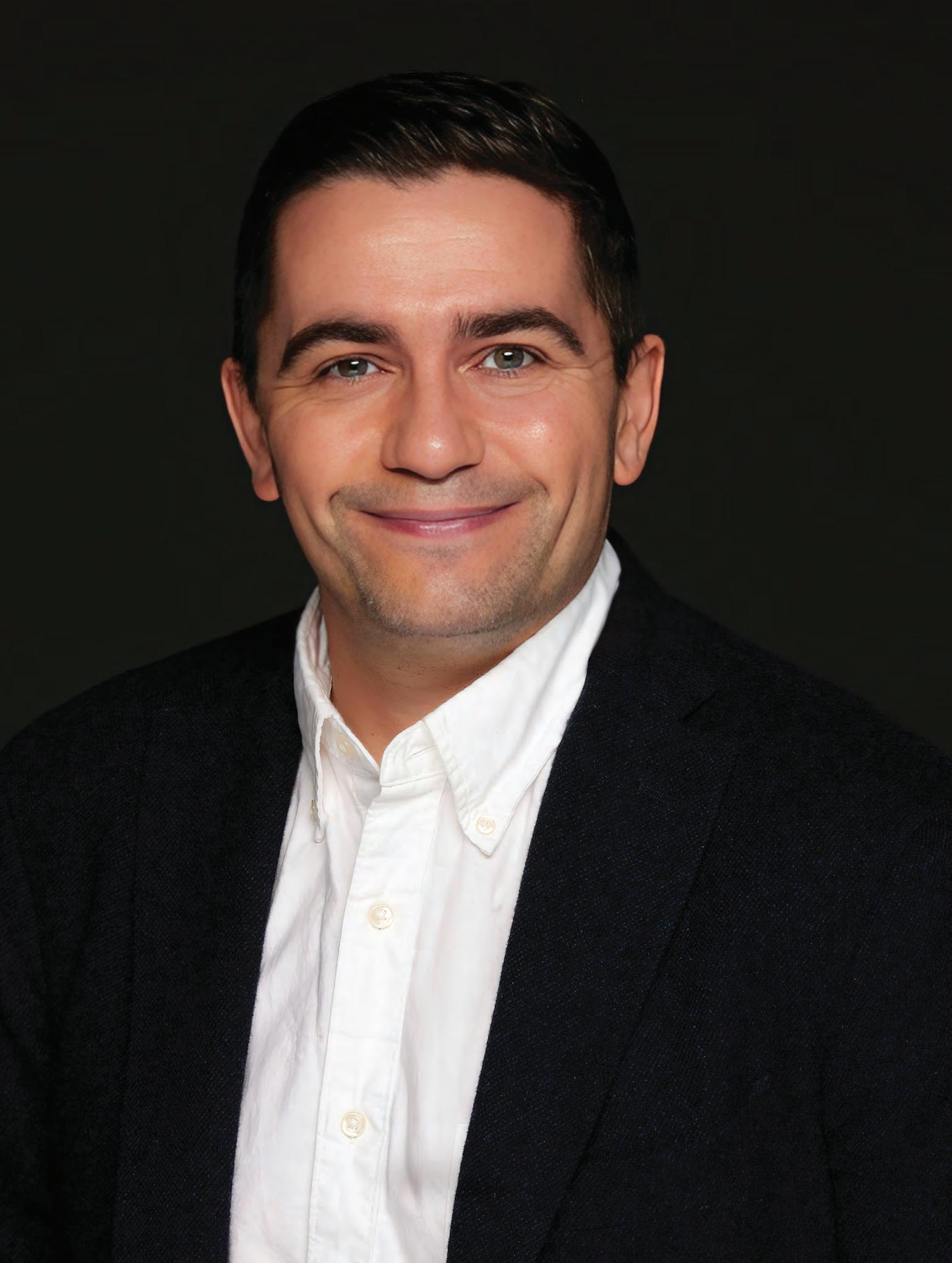
From its origins as an organization founded on the principles of advancing knowledge through its expansion from magazine to cable TV to a key pillar in Disney+’s streaming rail, National Geographic has maintained its mission to deepen people’s understanding of the world. That is what is guiding Tom McDonald’s approach as executive VP of content, with a focus on properties that will pop in a crowded media environment. He outlined his strategy at the TV Real Festival and weighed in on the approach to aligning with top-name talent and keeping quality on-screen. By Mansha Daswani
TV REAL: What’s guiding your overall programming strategy across unscripted at Nat Geo?
McDONALD: The headline for us, like a lot of places, is we want content that is gripping, entertaining and thrilling. What makes us distinct is the prism through which we look at everything: Do those ideas deepen one’s understanding of the world or enhance our appreciation of the world? It’s about that balancing act. It needs to speak to your head and heart. Ideas that may be edge-of-your-seat and thrill and entertain you, but also inspire you to think about the world in a different way. I think producers find that a helpful filter. We’re quite a broad church, but that guiding mantra helps narrow down how we select.
TV REAL: How have you maintained quality on-screen at a time when everyone is having to do more with less?
McDONALD: We’ve taken a fewer, bigger, better approach over the last couple of years. Rather than try to maintain a certain number of hours, which feels like a linear mindset, we’re focusing on having a set of tentpoles that feel like they’re going to stand out on Disney+. We’re taking a streaming-first approach. It’s great that we have linear channels around the world, but fundamentally, I’m thinking about its forever home, which is Disney+, and about ideas that we think are going to pop on Disney+, where you’re next to Star Wars, Marvel, Pixar and those other incredible brands. We’re taking a less-is-more approach while maintaining big ambition. It would be dangerous to go the other way, which is to make lots and lots of hours of television. Fewer shows but higher impact.
TV REAL: How important are co-productions for you?
McDONALD: My remit is global. We very rarely do coproduc tions. I’m principally looking for all rights on streaming. National Geographic International will commission local programming for particular countries. They can be coproduc tions. On my slate, it’s global, no co-production.
TV REAL: You’ve been aligning with a lot of top-name talent. How important is a David Blaine or a Ryan Reynolds when you’re trying to get someone to discover your show?
McDONALD: The question of discoverability is probably the thing that keeps everyone who works in unscripted awake at night. There are different ways to draw an audience to your show that are not just about talent. Name recognition, more broadly, is important. One of our most successful projects from the last few years, 9/11: One Day in America, does not have an A-list talent attached to it, but that’s a globally well-known anniversary. It was a landmark approach to that series— multiple episodes, bigger than has ever been done before—and felt like the definitive take. It garnered an enormous audience. We had a special called Titanic: The Digital Resurrection, using a digital scan that’s never been done before of the shipwreck. There have been lots of Titanic docs, but this genuinely shows you the Titanic in a new way. There are the A-list talent series, whether that’s Stanley Tucci, David Blaine, Chris Hemsworth or Will Smith. There’s a built-in recognition of that star. In the world of natural history, A Real Bug’s Life is a very smart lassoing of Pixar and Disney IP. It feels like it belongs only on our service. I have a guiding mantra: There needs to be a degree of name recognition for the audience to give it their time, but then it needs to offer something surprising, a new take or a different iteration—it needs to feel fresh and original. I’m unafraid of going back to stories where it feels like they may have been told before on television, as long as it’s a new way of telling them. We don’t work with talent for the sake of it. We look for the perfect mix of talent, what the talent’s known for and then what the talent’s passions and knowledge are. With Tucci in Italy, there’s a built-in understanding of why Stanley Tucci is going to Italy. Chris Hemsworth and Limitless he is Thor in the Marvel Cinematic Universe, so you expect him to be somebody who would push his body and his mind to the limits in the name of science. David Blaine is the world’s

Insider access continues to define National Geographic’s content strategy with originals like Top Guns: The Next Generation
most famous living magician and illusionist. The idea that he would explore culture through the prism of magic does n’t feel forced. The audience senses that there’s an authentic connection between the talent and the subject.
TV REAL: What trends are you seeing in natural history right now that are most exciting to you?
McDONALD: There was an enormous boom moment for natural history as a genre. There’s a universal quality to natural history; it goes beyond language barriers, and it doesn’t feel culturally specific. In every country around the world, there’s a passion for the natural world. Around 2020/2021, it seemed like every single streamer and broadcaster was in the natural history game. Inevitably, it now feels the waves are retreating. It’s a genre that we’ve always been pioneering in. We are not following trends. It feels core to our brand and identity. We are trying to create natural history that feels much more playful, mischievous and has a lighter tone, with a sensibility that doesn’t need to feel like it’s “voice-of-God” serious. I think about A Real Bug’s Life, which did incredibly well for us. [We’ve greenlit] The Real Finding Nemo. Underdogs with Ryan Reynolds is the Deadpool & Wolverine of natural history. It’s naughty, teenage and silly, but still features fantastic cinematography, amazing content and never-before-seen behavior. The choice of voice is really interesting there. It’s interesting to me to give the mantle of natural history to Awkwafina and Ryan Reynolds. They aren’t necessarily the David Attenborough, Morgan Freeman, Tom Hanks trusted voices of serious program-making. But then, on the other hand, you look at a show like The Americas on NBC. It’s Tom Hanks narrating. He feels like the voice of America. They’ve gone back to the grassroots of what makes a natural history show: exceptional cinematography, high stakes, amazing technology. It trusts in the simplicity of great storytelling.
TV REAL: What other areas are you investing in?
McDONALD: We’ve worked hard over the last few years to establish ourselves as a brand of record in the contemporary history space. There’s a privilege in being a brand where people trust us to tell their stories. In a world that can feel quite riven and partisan, we provide a platform for whatever your political stripes or worldview. National Geo graphic will do your story justice. That feels like an incredible privilege. I’m interested in doing that in ways
that aren’t necessarily events of tragedy. Are there stories that are more uplifting, or are about cultural movements? A lighter tone, but still capturing a moment in time. I’ve noticed a real appetite for new evidence, new ways of seeing or new discoveries. If we go back to the source material, documentary evidence, how can we genuinely shed new light on history rather than just retelling it using different actors or different CGI? There are the first glimpses of the use of AI. Our cinema documentary Endurance used AI lightly to bring back some of the voices of the people on the Endurance ship, using their real words but AI to enhance their voices. You can use AI as a tool to bring people back to life in a way that feels respectful, without fabricating things they said, and is still incredibly journalistic.
TV REAL: How are you leveraging social media?
McDONALD: We remain the number one brand on Insta gram. That means you can leverage the power of social in different ways. You can use it simply as a marketing tool—we do all of the things you would expect from a brand like ours to pop things on social. But more interesting to me is when we’ve been brave enough to put out content early from a forthcoming show to see how it performs on social media. For Secrets of the Penguins, we filmed some extraordinary footage and had to make the decision: hold it and wait for it to be in the show, or release it now? We put it out on social a year before the show came out. That footage was viewed over 160 million times. It’s our bestperforming piece of footage ever on social. It didn’t matter that it wasn’t instantly driving audiences to Secrets of the Penguins. It was driving audiences to our social feeds, where I want the young generation to experience extraordinary content from Nat Geo and hopefully build an affiliation with the brand.
At the same time, we’re testing interesting talent. We have a brilliant explorer, Eva zu Beck. She has done a series for us on YouTube, Superskilled. She has built a strong following through National Geographic’s YouTube channel and social media. That doesn’t mean we’re going to make a Disney+ series with Eva, but it does mean we are building the next generation of talent through our social channels. There are opportunities in social to reach different types of audiences. It’s a great place for experimentation, building your audience, and it makes the world that we’re operating in feel bigger.
TV REAL: What are your other priorities in the year ahead?
McDONALD: Our roster is underpinned by Nat Geo principles and values about appreciating the planet and deepening our understanding of the world, but that doesn’t limit us in form or tone. We’re probably at our most expansive right now. A landmark film with David Attenborough launched in the same month as Underdogs with Ryan Reynolds. The fact that we can operate at both ends of that spectrum while still retaining National Geographic values feels great. We’re taking some big swings: a documentary with Tom Hiddleston about Pompeii that feels more Loki than dusty Pompeii documentary; and Meet the Planets , with Max i mum Effort and the BBC Studios Science Unit, reimagining the solar system as though it were a soap opera. In a landscape that sometimes feels like it is in retreat or that people are playing safe for understandable reasons, we’re still able as a brand to take big risks and swings.
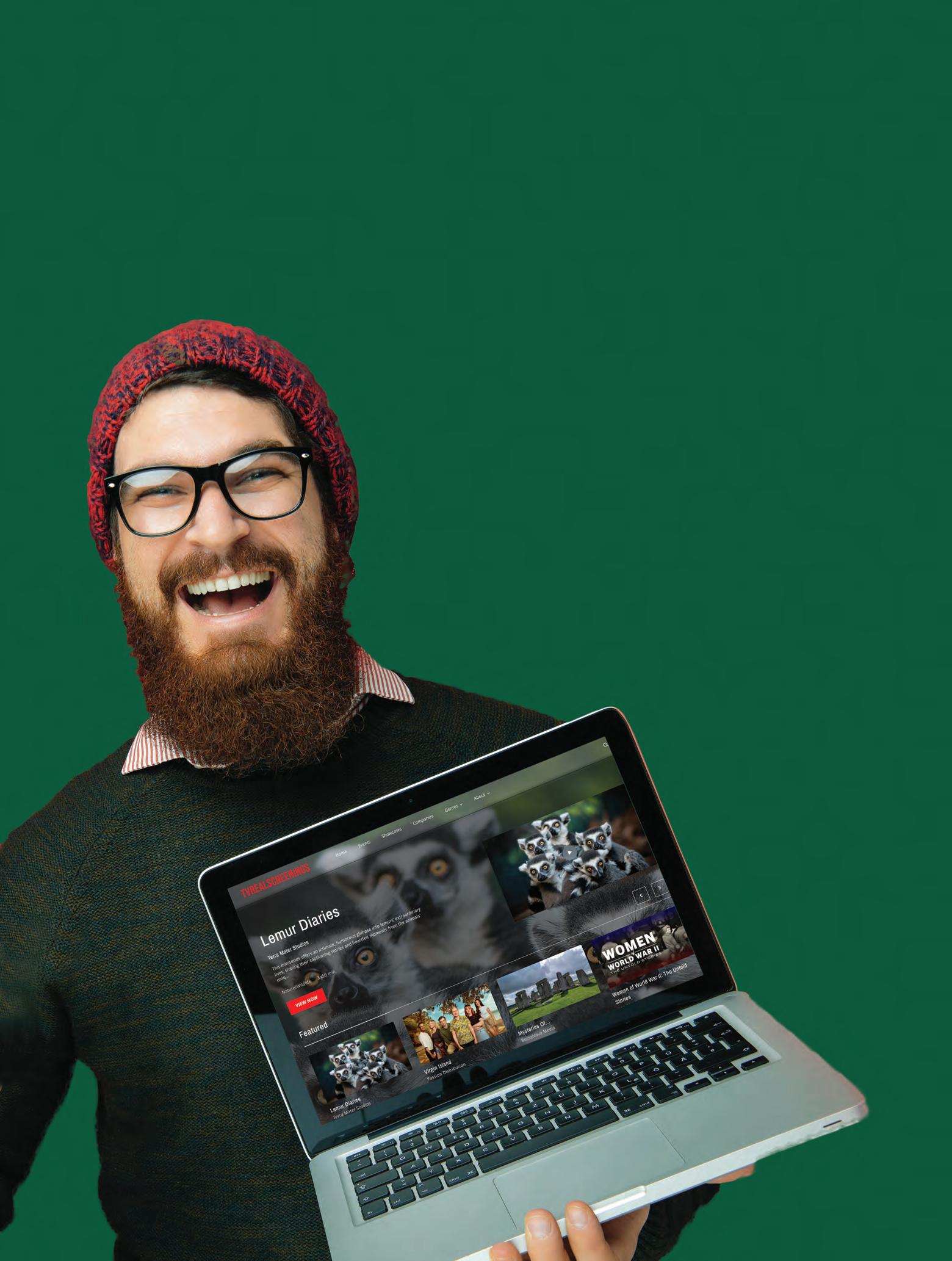
The only video portal for the factual programming industry.
